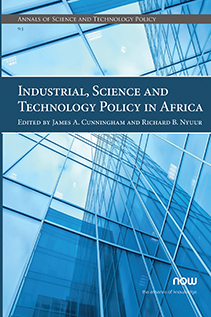Industrial, Science and Technology Policy in Nigeria
By Emmanuel Ogiemwonyi Arakpogun, University of Stirling, UK, emmanuel.arakpogun@stir.ac.uk | Femi Olan, University of Essex, UK, femi.olan@essex.ac.uk | Okorhi Johnson Ojiyovwi, Dennis Osadebay University, Nigeria, johnson.okorhi@dou.edu.ng | Chigozirim Ajaegbu, Babcock University, Nigeria, ajaegbuc@babcock.edu.ng
Abstract
Given the critical and wider transformational role of technology on industrialisation and socio-economic activities, national governments have become increasingly concerned with drawing up policies that would create the enabling environment for science and technology (S&T) to flourish and accelerate industrialisation for the benefit of the wider society. However, given the flaws in policies largely associated with African countries, including Nigeria, successive policy formulations leave much to be desired. This work sets out to explore the Nigerian context to address policy gaps and advance the wider debate around coherent and implementable policies. We conclude with recommendations to help the Nigerian government make informed decisions when it comes to shaping S&T policies and implementation strategies for future advancement.
Industrial, Science and Technology Policy in Africa
There has been significant research attention and focus on industrial science and technology policies in developed economies that have been at the forefront of implementing various policy initiatives designed to stimulate firm level R&D, enhance university industry collaborations, and support entrepreneurs and start-ups. However, there has not been the same consistent research attention on science and technology policy in less developed countries where there are distinct economic, social, cultural and institutional differences. Industrial, Science and Technology Policy in Africa considers some of the contextual issues for science and technology policy development in Africa and proposes future avenues for research.

Companion
Annals of Science and Technology Policy, Volume 9, Issue 1 Special Issue: Industrial, Science and Technology Policy in Africa
See the other articles that are also part of this special issue.